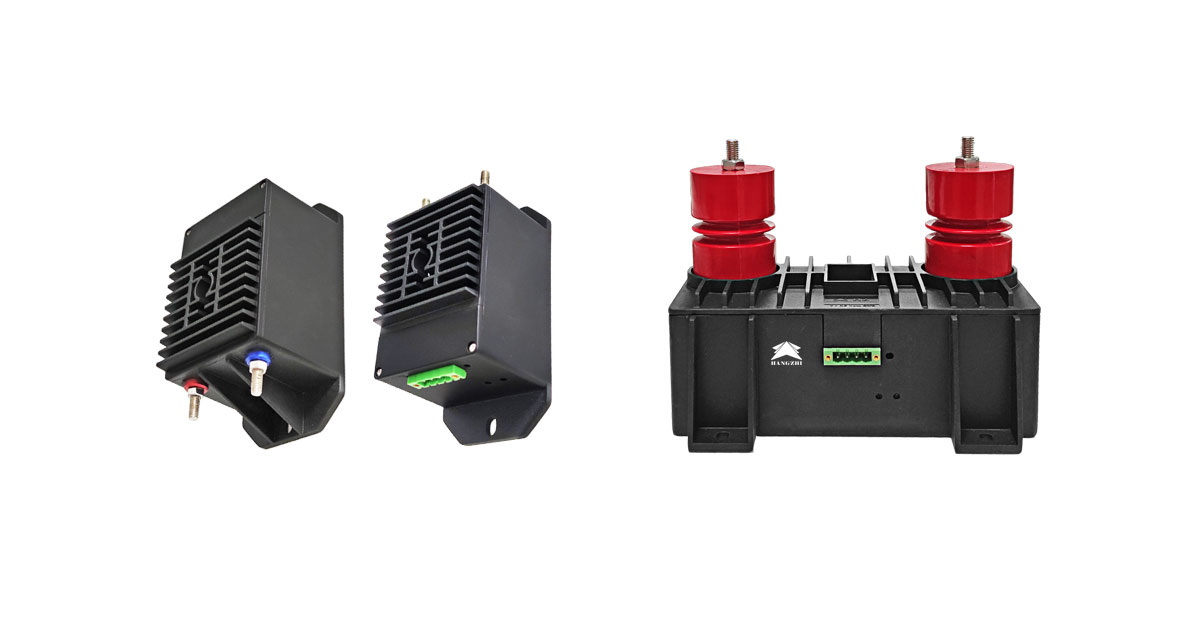
Understanding Voltage Transducers
A voltage transducer is a device that converts the electrical voltage flowing through a conductor into a measurable signal, typically a voltage or a current that can be easily monitored. These devices are crucial for monitoring and controlling electrical systems, especially in high-voltage environments.
The Role of Voltage Sensors in High-Voltage Environments
In high-voltage environments, the primary role of voltage transducers is to provide accurate and real-time monitoring of electrical voltage. This monitoring is crucial for several reasons:
Preventing Overloads and Short Circuits: High-voltage systems are prone to overloads and short circuits, which can cause significant damage to equipment and pose severe risks to personnel. Voltage transducers help detect these anomalies early by continuously monitoring the voltage. When a current spike or irregularity is detected, the system can automatically shut down or take corrective action, preventing potential disasters.
Ensuring Equipment Efficiency and Longevity: Equipment in high-voltage environments is often expensive and critical to operations. By accurately measuring the voltage, transducers help ensure that equipment is operating within its designed parameters. This not only enhances efficiency but also extends the lifespan of the equipment .
Enhancing Safety Protocols: Safety is a critical concern in high-voltage environments. Voltage transducers play a vital role in safety protocols by providing the necessary data to implement and enforce safety measures. For instance, they can trigger alarms or shutdowns if the voltage exceeds safe levels, thereby protecting both the equipment and the personnel working in the vicinity.
Key Benefits of Using Voltage Transducers in High-Voltage Environments
The use of voltage transducers in high-voltage environments offers numerous benefits, making them indispensable for ensuring safety and reliability. Here are some of the key advantages:
High Accuracy and Reliability: Voltage transducers are designed to provide highly accurate measurements, even in challenging high-voltage conditions. This accuracy is crucial for detecting even the slightest irregularities in the current flow, which could indicate potential safety hazards. The reliability of these devices ensures continuous monitoring without significant downtime or maintenance, which is essential in critical applications.
Real-Time Data and Remote Monitoring: Modern voltage transducers are equipped with advanced features that allow for real-time data transmission and remote monitoring. This capability is especially beneficial in high-voltage environments, where access to the equipment may be limited or dangerous. Remote monitoring enables operators to keep track of the system’s performance from a safe distance, allowing for quick intervention if necessary.
Scalability and Flexibility: Voltage transducers suitable for a wide range of applications. Whether you are dealing with small-scale high-voltage systems or large industrial setups, there is a voltage transducer that can meet your needs. This scalability and flexibility make them an ideal choice for diverse high-voltage environments.
Cost-Effectiveness: While high-voltage equipment and monitoring systems can be expensive, voltage transducers offer a cost-effective solution for ensuring safety and reliability. Their ability to prevent costly equipment failures and reduce downtime significantly outweighs the initial investment. Moreover, the extended lifespan of equipment due to accurate current/voltage monitoring further contributes to cost savings.
Applications of Voltage Transducers in High-Voltage Environments
Voltage transducers are used in a variety of high-voltage applications, each requiring precise and reliable voltage monitoring. Some common applications include:
Power Generation and Distribution: In power plants and electrical substations, current transducers are used to monitor the flow of electricity, ensuring that the system operates within safe parameters. They help prevent overloads and maintain the stability of the power grid.
Industrial Manufacturing: Many industrial processes involve high-voltage machinery and equipment. Current transducers are used to monitor the electrical current in these machines, ensuring that they operate efficiently and safely.
Renewable Energy Systems: Renewable energy sources, such as wind turbines and solar panels, often operate at high voltages. Current transducers help monitor the electrical output of these systems, ensuring that they are functioning correctly and safely feeding power into the grid.
Electric Vehicles (EVs): The growing adoption of electric vehicles has led to the development of high-voltage charging stations and battery systems. Current transducers are critical in these systems to monitor the charging process and ensure the safety of the vehicle and its users.
The Future of Voltage Transducers in High-Voltage Environments
As technology continues to advance, voltage transducers are expected to become even more sophisticated, offering enhanced features and capabilities. For example, the integration of smart sensors and IoT (Internet of Things) technology will allow for even more precise monitoring and control of high-voltage systems. These advancements will further improve safety and efficiency in high-voltage environments, making voltage transducers an even more critical component.
Abschluss
In high-voltage environments, the stakes are incredibly high. The potential for catastrophic failure and the associated risks to both human life and valuable equipment make safety the top priority. Voltage transducers are an essential tool in maintaining this safety. Their ability to provide accurate, reliable, and real-time monitoring of electrical currents/voltage is critical in preventing accidents, ensuring equipment efficiency, and protecting personnel. As technology continues to evolve, the role of voltage transducers in high-voltage environments will only become more significant, solidifying their place as a cornerstone of modern electrical safety systems.
